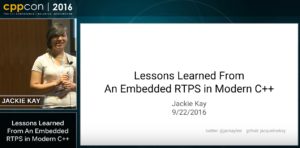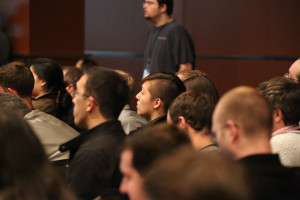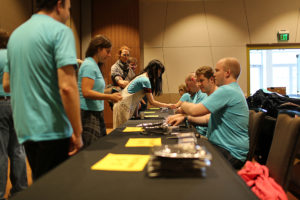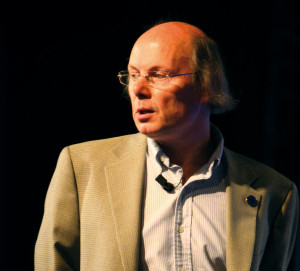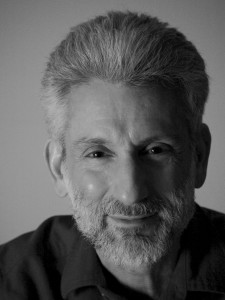
I’m very pleased to announce that Dan Saks will be one of our keynotes this year! Dan is one of the world’s leading experts on the C and C++ programming languages and their use in developing embedded systems.
He is the president of Saks & Associates, which offers training and consulting in C, C++ and embedded programming. Dan has previously served as secretary of the ANSI and ISO C++ Standards committees and as a member of the ANSI C Standards committee.
Dan used to write the “Programming Pointers” column for embedded.com. He has also written for numerous publications including The C/C++ Users Journal, The C++ Report, The Journal of C Language Translation, Software Development, Embedded Systems Design and Dr. Dobb’s Journal. With Thomas Plum, he wrote C++ Programming Guidelines, which won a 1992 Computer Language Magazine Productivity Award. He has presented at conferences such as Software Development and Embedded Systems. More recently, he contributed to the CERT Secure C Coding Standard and the CERT Secure C++ Coding Standard.
Dan’s keynote, extern “C”: Talking to C Programmers About C++, will be about migrating C code (and C programmers) to modern C++:
Most of us have heard this story. We’ve even told it ourselves…
C++ is nearly all of C, plus a whole lot more. Migrating code from C to C++ is pretty easy. Moreover, the migration itself can yield immediate benefits by exposing questionable type conversions that can be sources of latent bugs. After migration, the code performs as well in C++ as in the original C. And now that it’s C++, you have ready access to a wealth of advanced features you can (but don’t have to) use to implement enhancements.
Who wouldn’t want that? Legions of C programmers, apparently.
Despite the success of C++ in numerous application domains, C remains considerably more popular, especially in embedded, automotive, and aerospace applications. In many cases, projects resist C++ because their managers think the risks outweigh the benefits. In other cases, the resistance comes from programmers who persist in believing bad things about C++, even when those things aren’t true.
What can the C++ community do to overcome this resistance? Drawing on lessons from cognitive science, linguistics and psychology, and (of course) computer science, this talk offers suggestions about how to make the case for C++ more persuasive to C programmers.
We’ve got some program previews from three tracks today:
Here’s some of our content on embedded programming:
We’ve also got a lot of great talks about the upcoming Coroutines TS:
And finally, some talks about accelerator and GPU programming:
Come join us at CppCon in Bellevue this September – registration is still open!
— Bryce Adelstein Lelbach
Continue reading →


